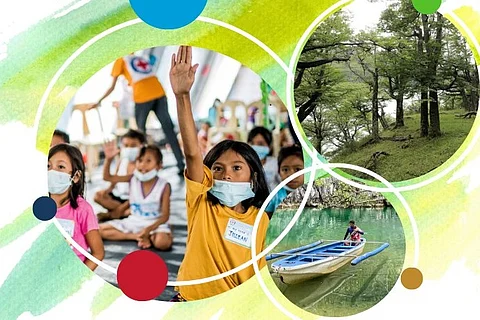
- NEWS
- the EDIT
- COMMENTARY
- BUSINESS
- LIFE
- SHOW
- ACTION
- GLOBAL GOALS
- SNAPS
- DYARYO TIRADA
- MORE

The United Nations (UN) delivered $137 million worth of human, economic and environmental programs and projects in the Philippines in 2024 under a four-year cooperation agreement to implement the country’s sustainable development goals (SDGs).
The progress and contributions of the UN toward the country’s SDGs are detailed in the 2024 Annual Results Report published last week, according to Philippines national information officer of the United Nations Information Center Fritz Flores.
The report provides an overview of partnerships and joint initiatives, as well as the financial requirements and available resources needed to support the Philippines’ trajectory toward upper middle-income status.
Human development—encompassing healthcare, nutrition, education, housing, governance, and peacebuilding—accounted for the largest share of UN support, totalling $84.2 million.
UN contribution that significantly improved child immunization rates, particularly against measles resulted in the Philippines’ removal from the list of the top 10 countries with the highest number of “zero-dose” children—those who have not received any vaccinations.
Collaborative initiatives also made a measurable impact on child education and protection. A school meals program improved both nutrition and attendance, while targeted projects addressed child labor, early and forced marriage, and adolescent pregnancy—helping keep children in school and safe from harm.
The UN also supported the mainstreaming of gender-responsive and human rights-based approaches in governance and social protection. Technical assistance contributed to key policy milestones, including the finalization of the Fourth Philippine Human Rights Plan, the convening of the Drug Policy and Law Reform Summit, and the passage of a bill protecting the rights of internally displaced persons in the Bangsamoro region.
The second-largest investment area—totalling $27.1 million—focused on sustainable economic development, innovation, and decent work.
The UN provided targeted support to micro, small, and medium enterprises, such as business and investment opportunities, capacity building, market linkages, internationalization, and digitalization, including training on artificial intelligence (AI) tools.
The Philippines also joined the Global Accelerator on Jobs and Social Protection for Just Transitions as a pathfinder country, with UN support. This initiative aims to mobilize global backing for the 10-year National Employment Masterplan and to develop an accelerator roadmap for the construction and transportation sectors.
Investments in environmental sustainability reached $25.7 million, covering disaster risk reduction, water and sanitation, resilience building, circular economy promotion, low-carbon development, and biodiversity management.
Efforts focused on transitioning to more sustainable practices and policies, including renewable energy and waste management. The UN also supported access and benefit-sharing schemes and biodiversity corridor policies to protect conservation areas and uphold the rights of indigenous communities who depend on these natural resources. Nearly 28,000 people directly benefited from UN-supported environmental initiatives.
In 2025 and beyond, there will be a stronger emphasis on supporting large-scale, multi-sectoral, nationally owned interventions, as well as sustained efforts in human capital development and transition support in the Bangsamoro Autonomous Region in Muslim Mindanao, according to the report.
In 2024, the Philippines and the UN reaffirmed their enduring partnership by launching the Philippines 2024–2028 UN Sustainable Development Cooperation Framework. As a founding UN member and staunch advocate of multilateralism, the Philippines strengthened its commitment to the 2030 Agenda through the framework, which prioritizes three inter-connected areas of work; human development, inclusive economic growth, and environmental sustainability.
UN Philippines resident coordinator Arnaud Peral said the UN will work with the Philippines to showcase its experiences, good practices, and leadership globally.
“With its perseverance, resilience, ambition, and leadership, the Philippines has so much to offer the multilateral system—and the world,” Peral said.
